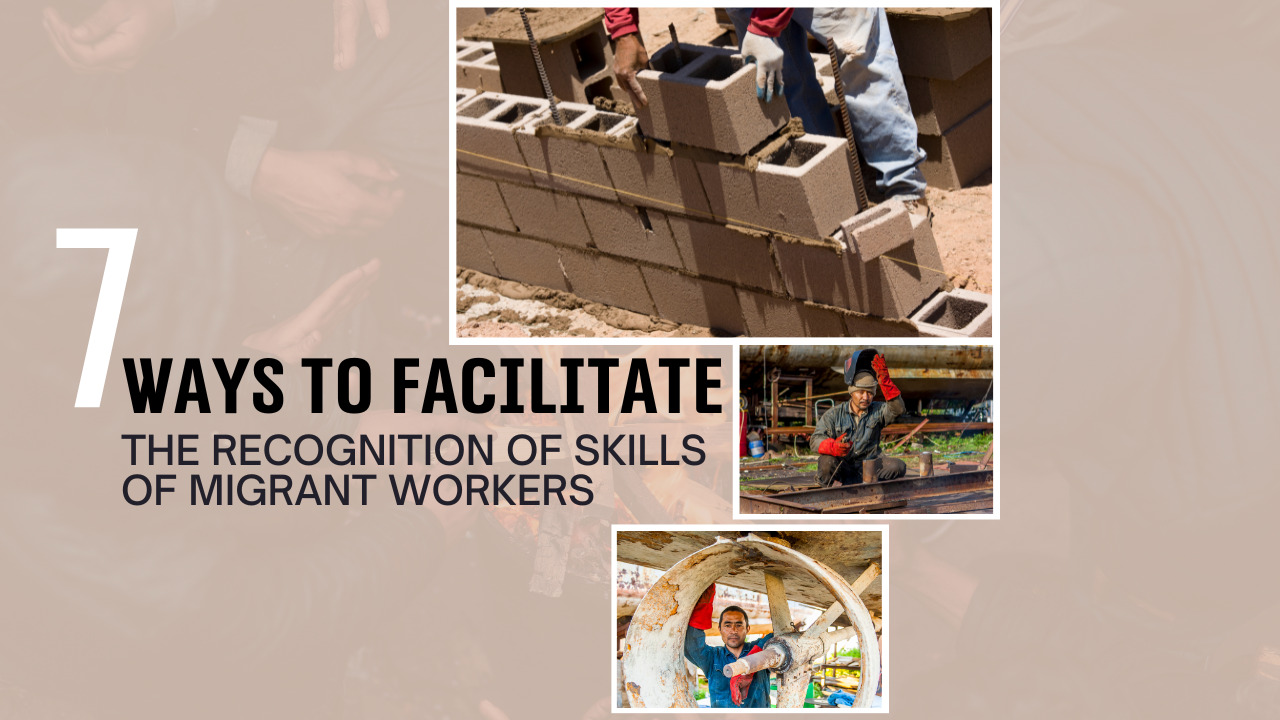Various factors influence the productivity of migrants as workers in the country they migrate to. Among them are skills and education levels.
Some may have studied in the countries where they were born, but the companies in their new residence may not officially recognize such qualifications. Such factors give little opportunities to migrant workers. They may have difficulties finding employment.
However, as a business manager, it’s crucial to put in place systems to identify their skills and give them equal employment opportunities like your country’s citizens. Below are some ways to help recognize their skills:
Table of Contents
Put In Place Procedures That Recognize Foreign Qualifications
As a prospective employer, you ought to go through the credentials of migrant applicants and evaluate their academic qualifications and professional certifications. Remember, it’s not a must for them to have studied in your country’s universities.
You can base your judgment on their countries of origin. For instance, part of the advertised job post qualifications may be a Bachelor of Canon Law, which may not be offered in the applicant’s country of origin.
In such a case, you’d want to consider close alternatives to the desired discipline. It encourages migrants to pursue employment in other countries.
Besides, the government can develop standardized methods to group foreign qualifications into credentials that allow migrant workers to get trade certification, allowing them to get employment quickly in the host country.
If migrant workers show up with such qualifications, you should give them an opportunity for recruitment without bias.

African male worker checking level of the wall with the bubble level tool. Portrait of afro-american builder using spirit level inspecting apartment renovation
Integrate Programs That Recognize Their Skills
Some of the job opportunities available in the informal sector require special skills and techniques. In most cases, the migrant workers might not have the skills required to do the jobs.
However, they may need apprenticeship training to get most of the skills. For instance, if a migrant has construction skills, they can take lessons on safety tips before starting work.
These lessons can help them perform better in their jobs. Thus, the state should organize programs to develop their skills. They can facilitate vocational and educational training centers to test the skills of migrant workers and accredit them accordingly. Formal recognition of their skills can help them get employment without any trouble.
Help Immigrants Get Work
Host countries should have policies and programs for immigrants to get work quickly. They should be protected from work-related abuses. Because of their immigration status, they often fall victim to scam recruitment drives, discouraging them from seeking employment.
Authorities should enforce strict control of recruiters who ask for money from migrants, falsely promising to cover expenses such as visas and fake job opportunities. On the other hand, correct procedures will help evaluate their skills and place them in jobs that match their qualifications.
Ensure They Benefit From Labor Market Employment Services
By having organizations that control public employment services (PES), the government can monitor employment services for migrant workers.
They can give licenses to private establishments to offer employment to job seekers, including migrant workers. If both parties combine their efforts and work with the labor ministry, migrant workers would quickly find jobs in their host countries. Such measures ensure they’re benefiting from labor market schemes.
Prepare Them For Their Job Applications
Countries can team up to prepare migrant workers for jobs in their host countries. They can do so through training and workshops that recognize their skills.
During the training sessions, they can give insights on job opportunities and advise them on the application process to get their desired jobs or become entrepreneurs.
They can also share the requirements and documents necessary for specific jobs, such as work, resident permits, and language proficiency certificates. It helps migrants land jobs faster without any mishaps.
Tackle Stereotypes On Migrant Issues
Helping migrant workers get jobs avoids the stereotypes associated with their employment. Stereotypes negatively affect the workforce and could discourage migrants from looking for work. It’d best to treat migrant workers like any other team member.
Indeed, migrant workers make a significant contribution to economic growth in the host country. They pay taxes, which the government uses to build the country’s infrastructure.
They also contribute to the health insurance pool, from which the country’s ailing citizens benefit. Therefore, there’s no need to discriminate against them just because they don’t originate from your country. If their skills match the qualifications needed for a job, it’s best to have them as part of your team.
Encourage Migrants To Adopt Their Host Country Citizenship
Acquiring citizenship in the host country boosts migrants’ chances of getting work. So, encourage them to apply for citizenship, following the rules stipulated in the country’s laws and other official documentation such as work permits. You could even suggest that they consult a lawyer to guarantee their applications’ approval.
Conclusion
Migrants need employment opportunities just like you and me. However, their upbringing and education in a different country may not always be aligned with what employers are looking for.
Thus, it’s necessary to implement policies and measures that favor them. Ultimately, the host country benefits from them through their contribution to taxes and social schemes.





